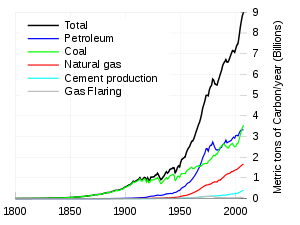Vast newly discovered natural gas resources and the expectation that demand for the fuel will rise substantially in fast-growing economies are ushering in a “Golden Age of Gas,” according to the Paris-based International Energy Agency.
Ratcheting up its projections about natural gas consumption, an IEA report yesterday said gas’s share of the global energy mix will surpass coal’s in the next two decades and by 2035, gas demand will increase by more than 50 percent.
The IEA forecast goes as far as some of the most optimistic gas industry projections. It also bolsters the assumption that China, India and the Middle East will lean more heavily on gas as a source of power generation. To meet the demand by 2035, IEA found that gas production will have to be about three times the volume of gas produced in Russia today.
The confluence of widely dispersed and abundant shale gas reserves, competitive prices and emerging demand drives IEA’s conclusions. But the top global adviser on energy issues reiterated concern among energy and climate change analysts that cheap and abundant gas will displace some zero-carbon power projects expanding nuclear and renewable energy. That has broader implications for cutting greenhouse gases tied to climate change.
Natural gas “is far from enough on its own” to put the world on a carbon emissions path toward an average global temperature increase of no more than 2 degrees Celsius. “Natural gas displaces coal and to a lesser extent oil, driving down emissions, but it also displaces some nuclear power, pushing up emissions,” says the report.
IEA cut its assumptions about nuclear power expansions after the recent earthquake in Japan, as Germany plans to move away from nuclear power and as building nuclear power plants becomes more expensive.
“The combination of more competitive gas prices, policy changes in China to 2015, a more restricted outlook for nuclear power and increased future uptake of [natural gas vehicles] results in a significant increase in natural gas demand over the outlook period,” the report says.
Related articles
- A ‘Golden Age’ for Gas? 2 Caveats (green.blogs.nytimes.com)
- Gas glut is fading as global demand surges (telegraph.co.uk)
- Natural gas is no climate change ‘panacea’, warns IEA (guardian.co.uk)









